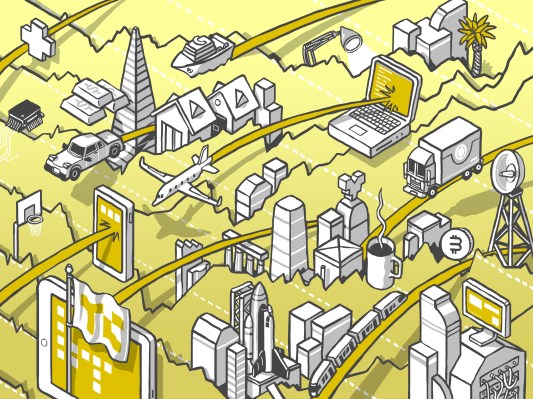It’s painful to watch SPAC deals collapse post-combination. You can viscerally feel dreams melting away to disappointment as founders, employees and investors still holding shares in the newly public entities watch their wealth dwindle.
The mess is not sector-specific. Media? Not a good SPAC target. Insurtech? Nope. 3D printing? Not looking good. E-scooters? Nerp. Hardware and software for apartment buildings? Not that either. Fintech? A mixed bag, but with some pretty poor results as well.
The Exchange explores startups, markets and money.
Read it every morning on TechCrunch+ or get The Exchange newsletter every Saturday.
SPACs did manage to get a number of startups and unicorns public more quickly than they might have managed on their own. But the results are proving to be pure trash so frequently once the hype has died down and real, post-debut life begins that I would hazard that we’ve collected enough data to call the SPAC boom a failure.
 A failure in what terms? In that SPACs will not become the chariots that help transport enough unicorns across the private-public market divide and begin to cut down on the rising number of pricey former startups collecting by the exits of Startup Land. The results are just too icky for that to work out.
A failure in what terms? In that SPACs will not become the chariots that help transport enough unicorns across the private-public market divide and begin to cut down on the rising number of pricey former startups collecting by the exits of Startup Land. The results are just too icky for that to work out.
The unicorn pileup
One of the most quietly pressing issues in technology investing today is the fact that the number of unicorns continues to grow, year after year. This is to say that the pace at which venture capitalists and other private-market investors can take companies public is far slower than the rate at which they can generate paper wealth. North of 900 unicorns are waiting for an exit, with Crunchbase counting 944 and CB Insights landing on a slightly higher figure of 959.
The result is that several trillions of dollars of value are sitting on the sidelines of the capital markets, waiting to be called into the game. And SPACs had a shot at helping.
Why were SPACs popular at all? The unicorn traffic jam was one part of the equation. There were others. Talk to a CEO of a company going public via a SPAC, and they will tout the ability to set a price early on and secure capital in a single shot. Those are good things, and fair reasons for SPACs to get a trial run from the venture-backed set.
Sadly for founders hoping that blank-check companies would help the pace at which unicorns find liquidity, the crop of SPAC-led debuts from companies that we are familiar with is a mess.
This morning, I pulled a list of companies that went public via a SPAC from memory to present a list of damages. Observe how far many companies have fallen under their SPAC’s pre-combination $10 per-share price:
- Dave.com, a recent SPAC, is now worth $4.92 per share. Not good for fintech!
- Latch, a hardware/software company targeting the multifamily-unit space, is worth $6.40 per share this morning, also far below its starting point. That is not a great result for SPACs.
- Bird, the e-scooter company? It went public via a SPAC. It’s now worth just $4.68 per share.
- Desktop Metal, a 3D printing company that leveraged a SPAC, is worth just $4.47 per share today, down even more than Bird to date.
- Babylon Health is worth just $6.05 per share, another black eye for SPAC-led debuts.
- BarkBox? Today it’s worth just $4.22 per share, a real stinker of a result.
- And Buzzfeed is down to $4.34 per share, deleting more than half its value in near-record time.
What solid company will want to follow that messy list into the public markets on the back of a blank-check company? Sure, you can find the odd SPAC that did well — SoFi is the normal counterpoint at this juncture — but mostly the results of the blank-check boom are a bust.
As a mechanism to help clear the unicorn backlog, SPACs failed. First and foremost, they fell short in cutting the list of unexited startups worth $1 billion or more in 2021. And that means they failed to create a new, faster, more efficient and successful way to take private companies public.
Perhaps the old hands were right about blank-check companies all along. They were historically a way to take the trash out. That maxim appears set to hold up.
